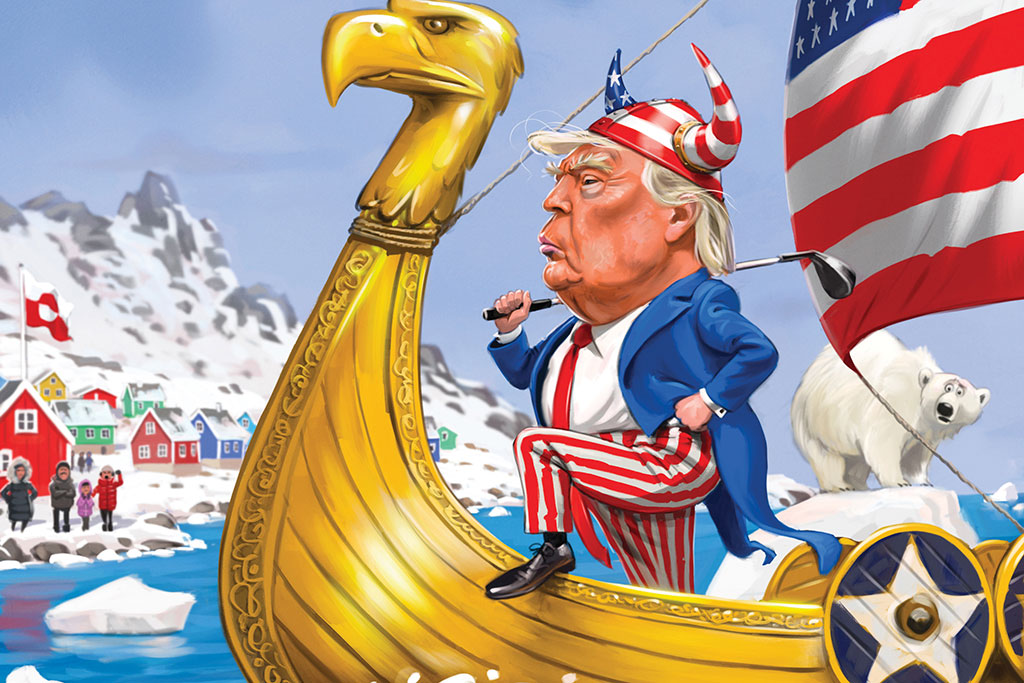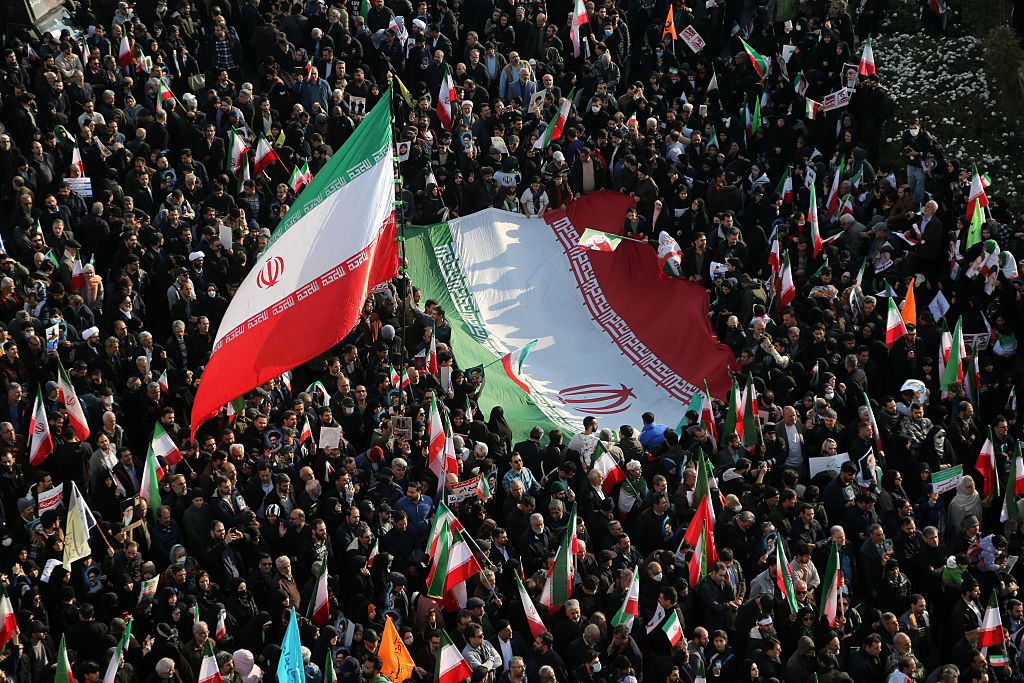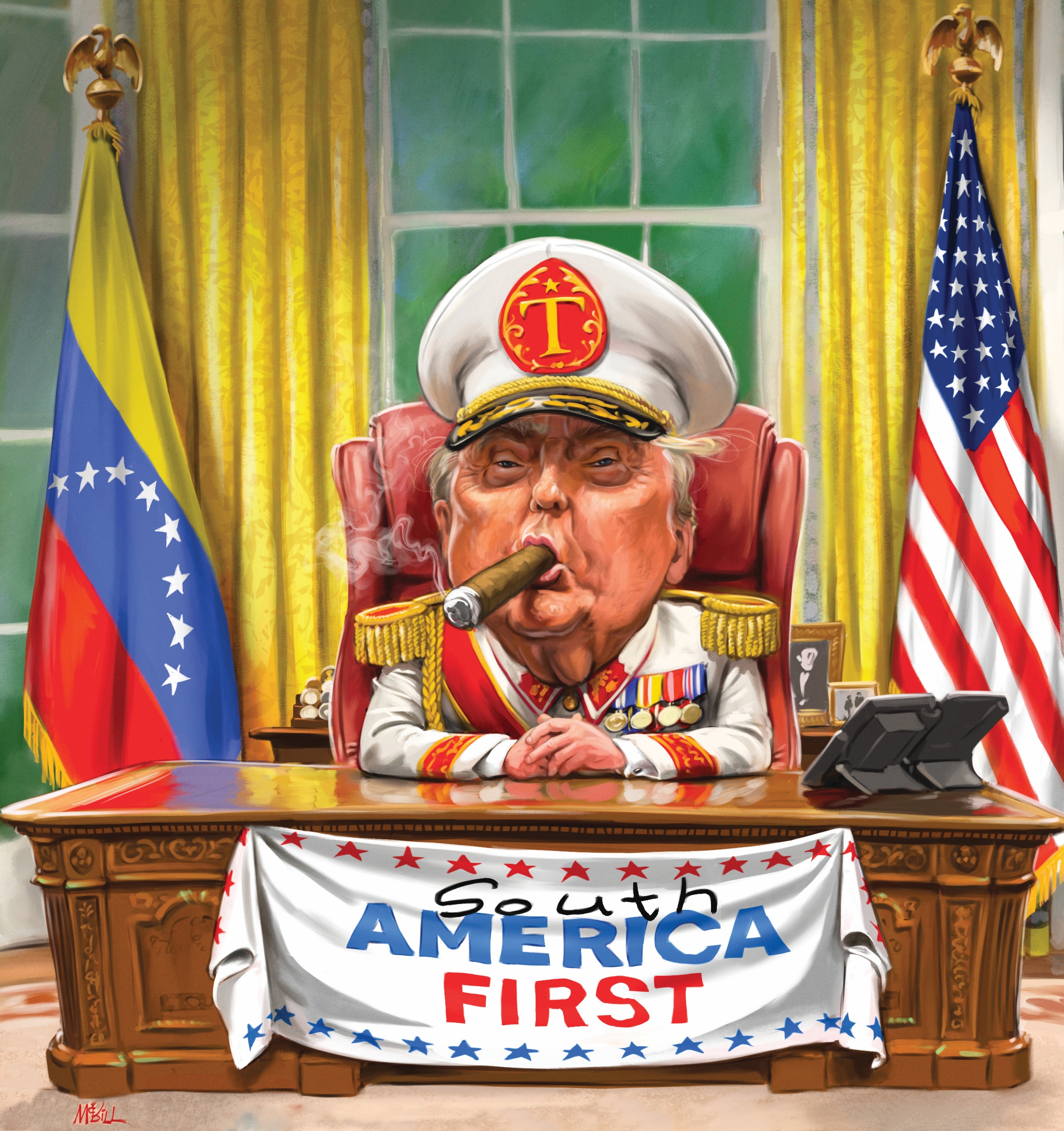Could Javier Milei bring Argentina's economy back to 'normal'?
Javier Milei, president of Argentina, has been in office for more than 500 days. What will his leadership mean for the economy?

Get the latest financial news, insights and expert analysis from our award-winning MoneyWeek team, to help you understand what really matters when it comes to your finances.
You are now subscribed
Your newsletter sign-up was successful
Want to add more newsletters?

Twice daily
MoneyWeek
Get the latest financial news, insights and expert analysis from our award-winning MoneyWeek team, to help you understand what really matters when it comes to your finances.

Four times a week
Look After My Bills
Sign up to our free money-saving newsletter, filled with the latest news and expert advice to help you find the best tips and deals for managing your bills. Start saving today!
Since independence in 1816, Argentina has defaulted on its sovereign debt nine times – most recently in 2020, says Caitlin McCabe in The Wall Street Journal. Now a “sea change” is under way as libertarian president Javier Milei delivers tough medicine to end chronic “political chaos, runaway prices and government overspending”.
Milei has laid off tens of thousands of civil servants and slashed red tape as part of “chainsaw budget-cutting” measures, says Craig Mellow in Barron’s. Inflation has fallen from 20% a month in late 2023 to 2% a month now, a big improvement in a nation prone to hyperinflation. To general surprise, “widespread strikes or riots” have been largely avoided, with many Argentines recognising the need for change.
Government bonds have responded with an “epic rally”, while the local Merval share index is up by two-thirds in a year. Argentina was kicked out of the benchmark MSCI Emerging Markets (EM) index in 2021 owing to restrictive currency controls. With Milei in liberalisation mode, speculation has grown that a return to EM status could be coming soon.
MoneyWeek
Subscribe to MoneyWeek today and get your first six magazine issues absolutely FREE

Sign up to Money Morning
Don't miss the latest investment and personal finances news, market analysis, plus money-saving tips with our free twice-daily newsletter
Don't miss the latest investment and personal finances news, market analysis, plus money-saving tips with our free twice-daily newsletter
An upgrade wouldn’t change much for the average investor. As Diego Celedon of JPMorgan notes, Argentine shares would account for just 0.2% of the overall EM index should they return. But it would be a game-changer for shares in Buenos Aires, sending almost $1 billion of funds pouring in from automatic buying by global funds that track the index.
A mid-term setback for Javier Milei?
Signs of discontent are growing, including a general strike earlier this month, says The Economist. While Milei remains popular, at 45% his approval rating has dipped recently as austerity bites.
Last year’s victories over inflation were achieved partly thanks to strict capital controls and a currency peg. Those rules deter foreign investors, while the peg was quickly consuming scarce central bank reserves. Thus to general surprise, last week Milei – flush with billions of dollars in cash from a fresh deal with the IMF – substantially eased currency rules.
The peso’s partial float is a high-risk move that could send inflation soaring ahead of midterm elections due in October, says Ciara Nugent in the Financial Times. The currency dropped 6% against the dollar in the first week of the float, less than expected and a sign that markets have confidence in Milei for now. With the left-wing Peronist opposition still widely blamed for economic woes, Milei may still be able to expand his tiny congressional minority later this year.
“Argentina’s history has been a non-stop” run of economic “malpractice”, says Juan Pablo Spinetto on Bloomberg. Now it has “the best shot in many years” to put a stop to chronic “overspending and money printing”. Long a cautionary tale in textbooks, Argentina might just be about to become a “normal” country.
This article was first published in MoneyWeek's magazine. Enjoy exclusive early access to news, opinion and analysis from our team of financial experts with a MoneyWeek subscription.
Get the latest financial news, insights and expert analysis from our award-winning MoneyWeek team, to help you understand what really matters when it comes to your finances.
Alex is an investment writer who has been contributing to MoneyWeek since 2015. He has been the magazine’s markets editor since 2019.
Alex has a passion for demystifying the often arcane world of finance for a general readership. While financial media tends to focus compulsively on the latest trend, the best opportunities can lie forgotten elsewhere.
He is especially interested in European equities – where his fluent French helps him to cover the continent’s largest bourse – and emerging markets, where his experience living in Beijing, and conversational Chinese, prove useful.
Hailing from Leeds, he studied Philosophy, Politics and Economics at the University of Oxford. He also holds a Master of Public Health from the University of Manchester.
-
 Can mining stocks deliver golden gains?
Can mining stocks deliver golden gains?With gold and silver prices having outperformed the stock markets last year, mining stocks can be an effective, if volatile, means of gaining exposure
-
 8 ways the ‘sandwich generation’ can protect wealth
8 ways the ‘sandwich generation’ can protect wealthPeople squeezed between caring for ageing parents and adult children or younger grandchildren – known as the ‘sandwich generation’ – are at risk of neglecting their own financial planning. Here’s how to protect yourself and your loved ones’ wealth.
-
 How Canada's Mark Carney is taking on Donald Trump
How Canada's Mark Carney is taking on Donald TrumpCanada has been in Donald Trump’s crosshairs ever since he took power and, under PM Mark Carney, is seeking strategies to cope and thrive. How’s he doing?
-
 Why does Trump want Greenland?
Why does Trump want Greenland?The US wants to annex Greenland as it increasingly sees the world in terms of 19th-century Great Power politics and wants to secure crucial national interests
-
 'Investors should brace for Trump’s great inflation'
'Investors should brace for Trump’s great inflation'Opinion Donald Trump's actions against Federal Reserve chair Jerome Powell will likely stoke rising prices. Investors should prepare for the worst, says Matthew Lynn
-
 The state of Iran’s collapsing economy – and why people are protesting
The state of Iran’s collapsing economy – and why people are protestingIran has long been mired in an economic crisis that is part of a wider systemic failure. Do the protests show a way out?
-
 Why does Donald Trump want Venezuela's oil?
Why does Donald Trump want Venezuela's oil?The US has seized control of Venezuelan oil. Why and to what end?
-
 Market predictions for 2026: Will Dubai introduce an income tax?
Market predictions for 2026: Will Dubai introduce an income tax?Opinion My 2026 predictions, from a supermarket merger to Dubai introducing an income tax and Britain’s journey back to the 1970s
-
 The war dividend – how to invest in defence stocks as the world arms up
The war dividend – how to invest in defence stocks as the world arms upWestern governments are back on a war footing. Investors should be prepared, too, says Jamie Ward
-
 Did COP30 achieve anything to tackle climate change?
Did COP30 achieve anything to tackle climate change?The COP30 summit was a failure. But the world is going green regardless, says Simon Wilson